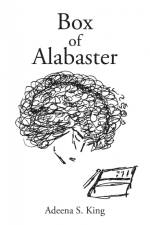von Adeena S. King
30,00 €
What is your oil? Box of Alabaster challenges you to release it. The author depicts a journey to knowledge of inner self, love of nature, and combines daring biblical allusion while the addressing dark topics such as great loss and unhealthy love. It details the uphill battle to success and peace with an elegance that gives dignity to painful events. The author's hope is that people from all walks of life will relate to and appreciate these poetic expressions.King, a Guyanese poet currently serving in the U.S. Navy, offers a set of poems that grapple with difficult emotions.The collection's title refers to an item mentioned three times in the New Testament, but this is not solely a faith-based work, but rather an exploration of universal experiences of identity and acceptance. The collection is prefaced by a standalone poetic work, "The Invitation," which urges the reader to receive this work as a "gift": "here are my pourings of oil / pure and unspoiled / I lay them at your feet." Her tone remains similarly earnest throughout, as if readers were glimpsing her private diary. She presents the poems in seven parts, and begins by exploring a feeling of forced grounding, using escapist nostalgia. In "Dock Boats," she writes, "I am in paradise / retired / sailing away / life within me / as I watch life without."With this, the poet settles into her voice and presents a retrospective journey of self-discovery; nearly every poem in the collection is dated and timestamped, with some from 2016 that seem to function as letters to the speaker's future self. The poems take readers through dark times, and although the author never offers absolute clarity, their impressions are powerful; she amplifies the works with varied rhythm, sometimes winding, and other times staccato. When the collection reaches an emotional climax, they begin to evoke God, artfully weaving prayer into the speaker's desperation, and by the penultimate section, the speaker begs for the grace to forgive and help themselves. At times, the writing becomes simpler and more repetitive, contrasting with maximalist biblical imagery to reflect the speaker's anger and frustration. In the final work, critically titled "Jezebel," King hints at the possibility of the duality of woman, and that the speaker has an enemy-or that perhaps she is that enemy.Promising works that show that the road to healing isn't a linear one.-Kirkus Review

